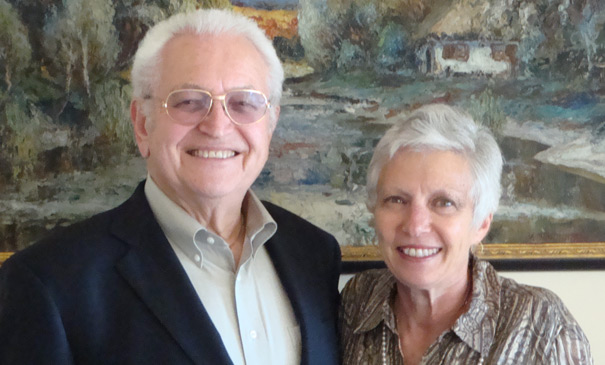
Before Melvin Freeman, MD, FACS was a leading ophthalmologist and researcher, he was a medical student at the University of Washington (UW) looking for ways to get real-world experience in a lab. He was fortunate to land summer internships in Dr. Frank Huenneken’s biochemistry research laboratories at UW, where he helped conduct experiments about how leukemia develops.
“It showed me how exciting research can be and how it can affect patient’s lives,” Dr. Freeman says.
In 1969, Dr. Freeman joined Virginia Mason’s ophthalmology team because we gave him the chance to continue his research while practicing medicine. He participated in many research studies throughout his career, including one that resulted in a solution still used today to protect the back of the eye’s cornea in cataract surgeries. When Dr. Freeman retired from medical practice in 1995, he continued pursuing research at the Benaroya Research Institute at Virginia Mason (BRI).
Because of this lifelong commitment to science and education, Dr. Freeman and his wife, Nanette, recently made a gift to BRI to fund an annual stipend for an additional BRI summer intern. BRI’s internships help undergraduates from across the country get hands-on experience working under some of the world’s top researchers. At the end of the summer, interns give a presentation on their research at a BRI research symposium.
“Internships helped me focus where I wanted to go and build a base of skills I used throughout my career,” Dr. Freeman says. “We hope to give young women and young men the same opportunity.”
The Freemans pledged this recurring gift to celebrate Dr. Freeman’s 50th year at Virginia Mason. Nanette says attending BRI’s annual Illuminations Luncheon fundraisers made her especially enthusiastic to make the gift.
“It was exciting to learn how BRI is improving quality of life and opening new areas of treatment for many autoimmune illnesses,” Nanette explains. “We’re excited to help the next generation be part of that.”
The Freemans know that funding an additional BRI internship will help more students not only build their skills and resumes, but also cultivate their passion for scientific research.
“BRI is at the top of immunological research,” Dr. Freeman says. “An internship here offers an opportunity to know the joy of research, and to see just how great it can impact people’s lives.”
 |
| Terms of Use |  |
Privacy Policy |  |
Notice of Privacy Practices |  |
Site Map |  |
Home |